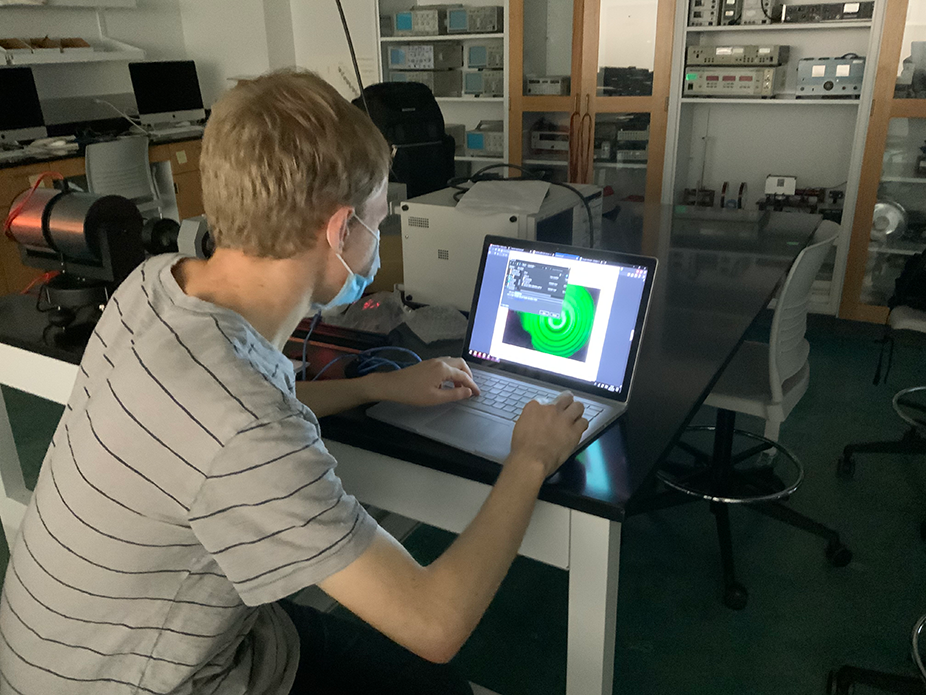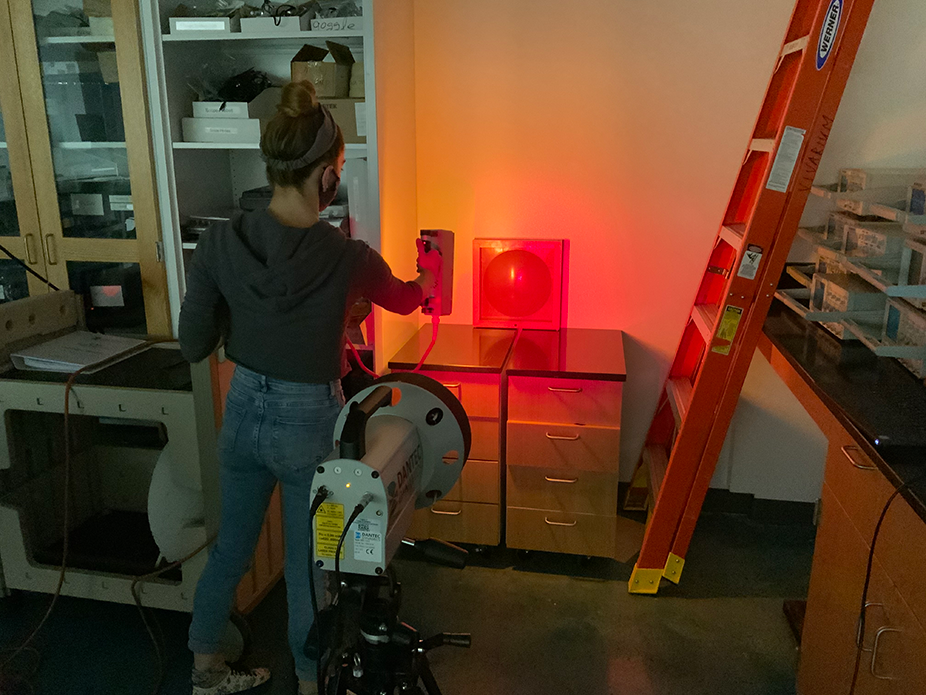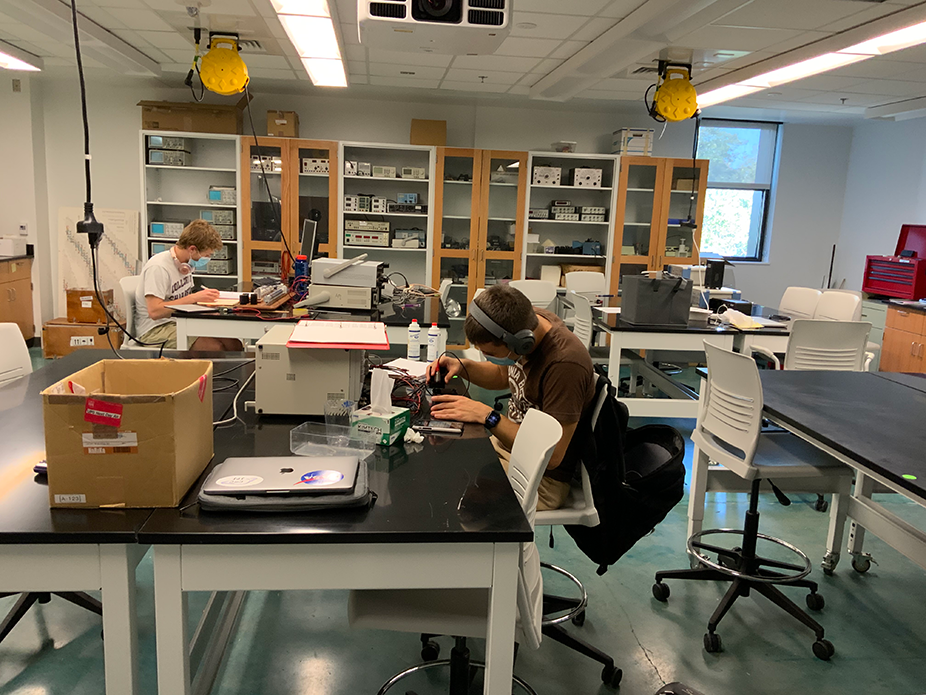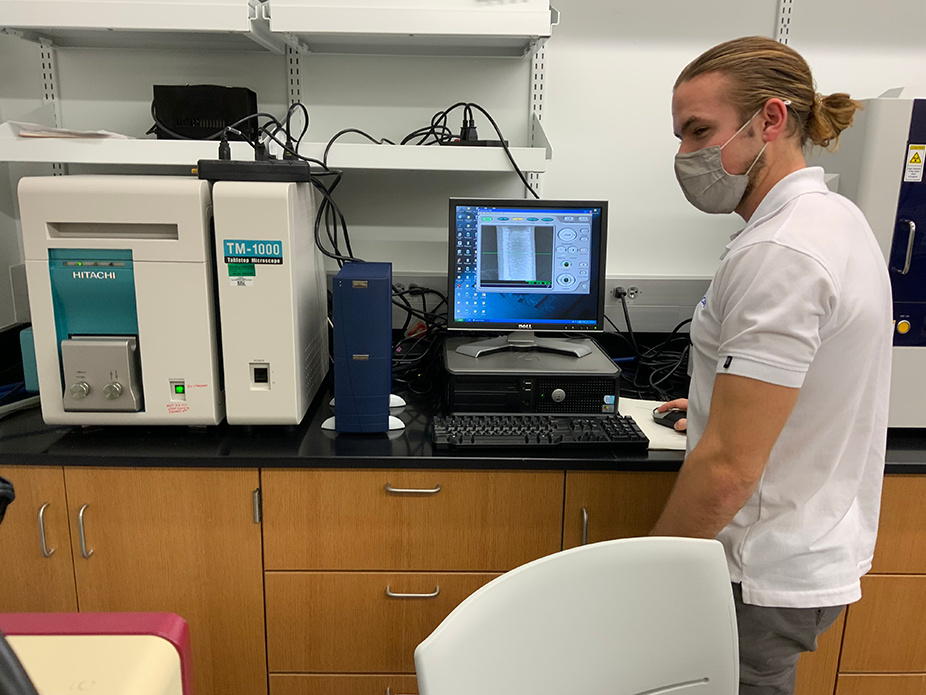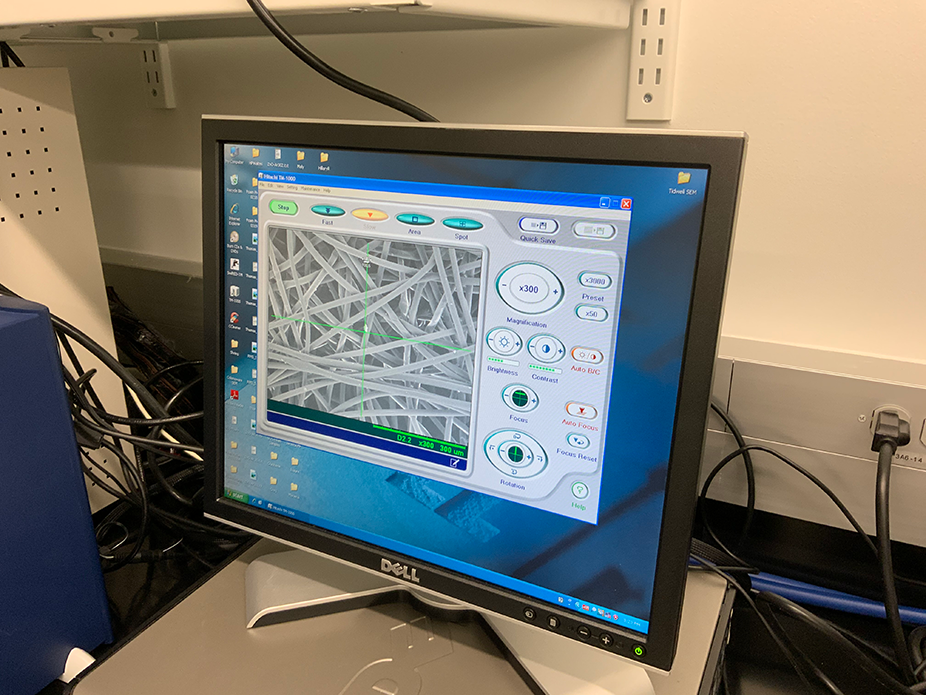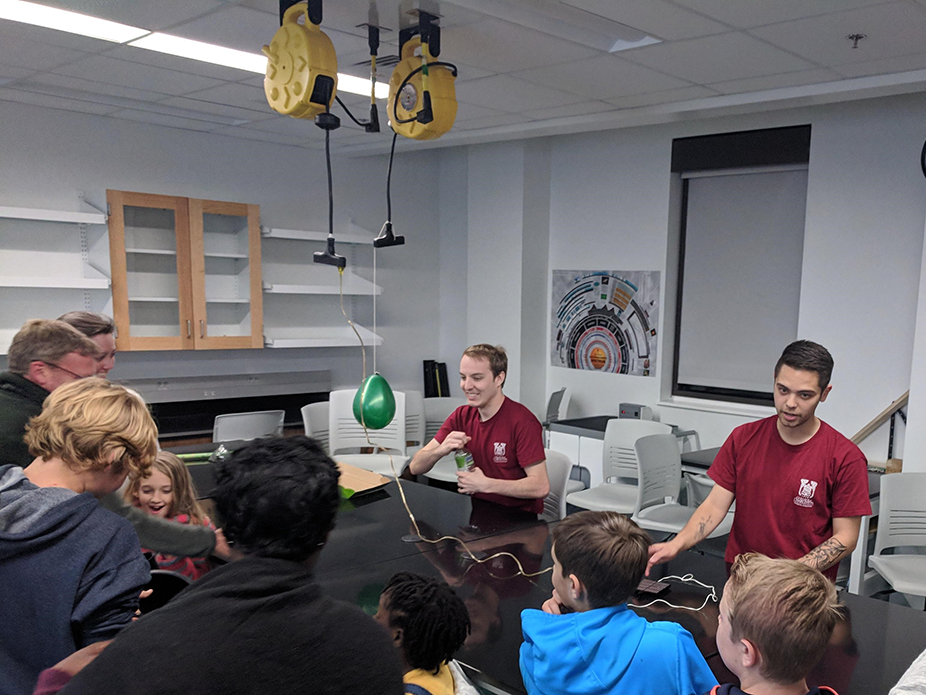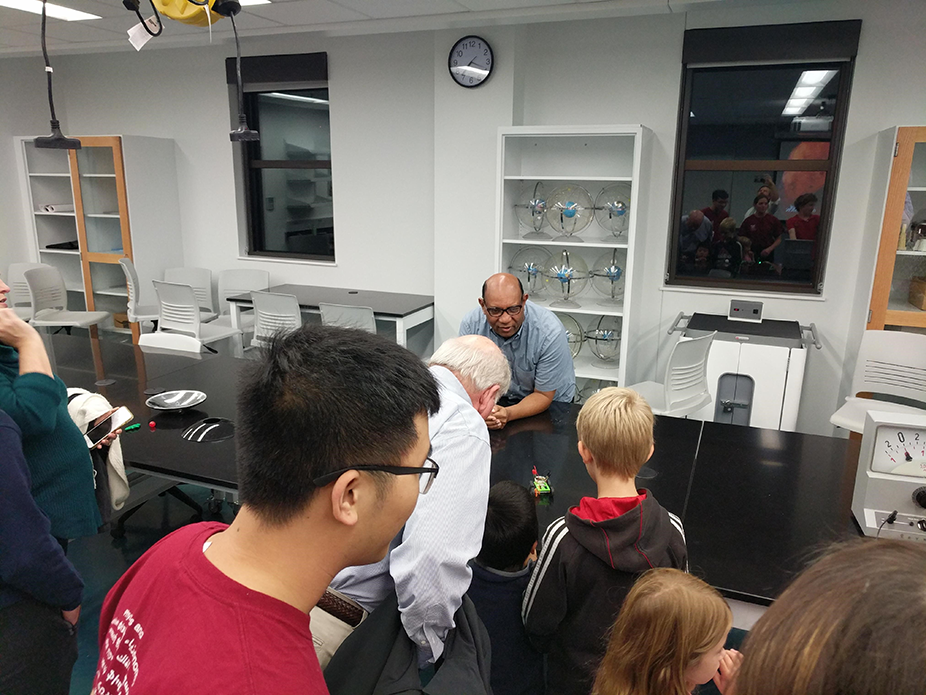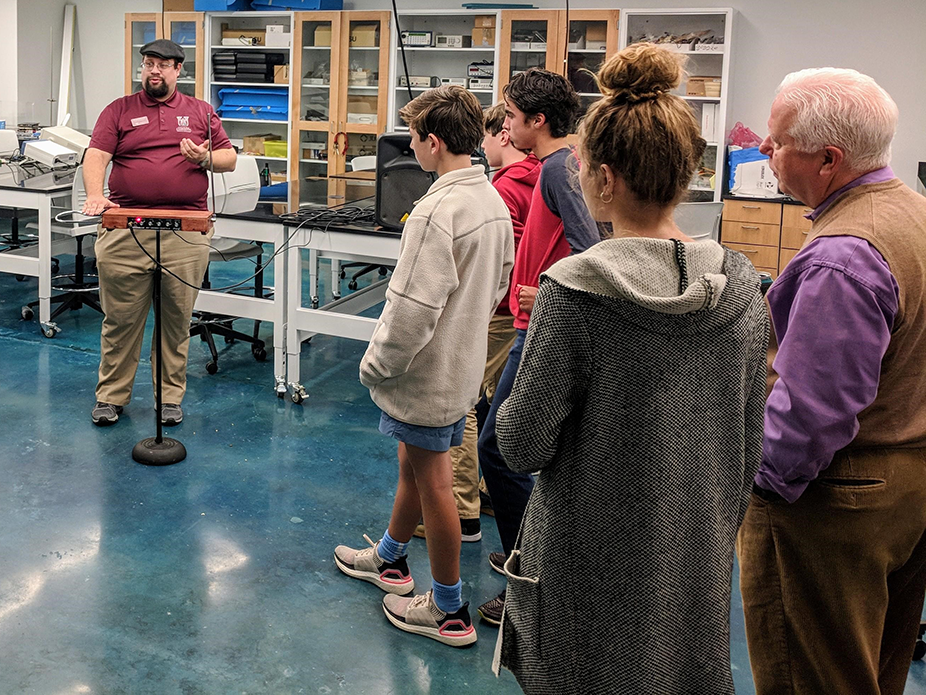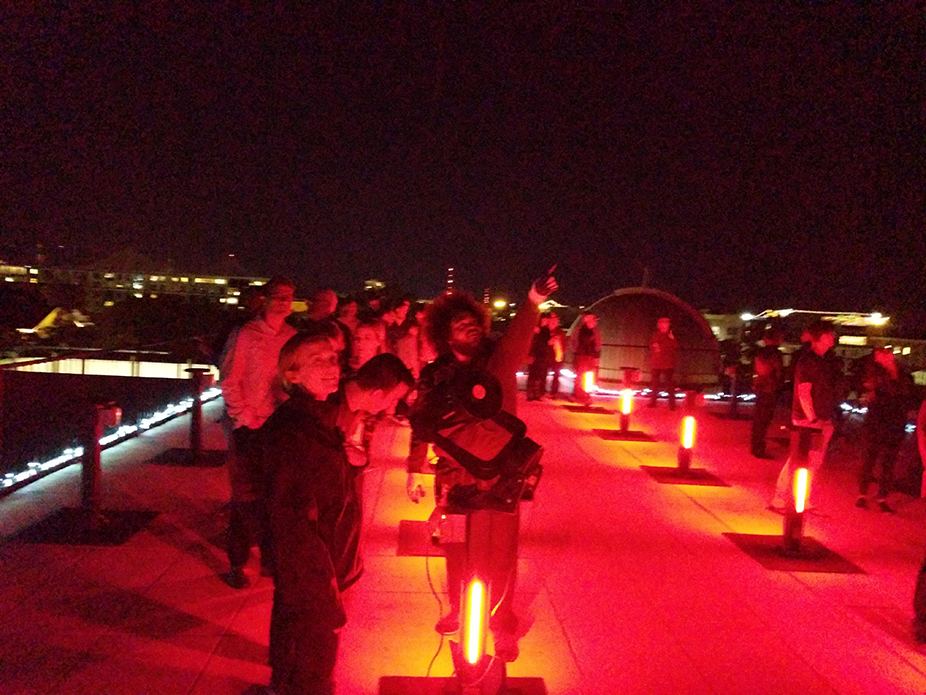Student Opportunities
Your advisors, the professors and department staff are all great resources. They can help you maximize your college experience.
We also have a handbook, available to current students on The Hub, to help guide you. This is a valuable resource that will help succeed in the program and in your future career.
Research opportunities
Talk to your professors and peers about what they’re working on. Find something that excites you!
A few of our ongoing research projects.
- Joe Carson carries out observational studies of extrasolar planets and circumstellar disks, and develops imaging instrumentation for medical applications. (Astronomy and Astrophysics)
- George Chartas studies black hole accretion and outflow. A collaborator in the international LSST project. (Astronomy and Astrophysics)
- Ashley Pagnotta studies variable stars, such as novae and supernovae, using observations across all wavelengths to understand their past and future behavior, and what it tells us about our universe. (Astronomy and Astrophysics)
- Alex Brummer works in physical and mathematical oncology, leveraging principles from ecology and techniques from computer vision and data science to understand cancer biology. (Physics)
- Narayanan Kuthirummal (NK) is interested in the spectroscopic, acoustic, and microscopic characterization of photonic materials, nanomaterials, and aerogels. (Physics)
- Alem Teklu uses acoustic and microscopic techniques to characterize metals, alloys, composites, thermoelectrics, and nanocrystals. (Physics)
- Mike Larsen is interested in atmospheric microphysics with an emphasis on radiative transfer, aerosol activation, ice nucleation, cloud particle growth, and raindrop interactions. (Meteorology and Atmospheric Physics)
- Lee Lindner is interested in coastal meteorology with an emphasis on sea breeze, hurricane surge, sea fog, coastal flooding, synoptic climatology, and hurricane climatology. (Meteorology and Atmospheric Physics)
The NIH SC-INBRE program provides for approximately 15 students per year to perform cutting-edge biomedical research with CofC faulty for 10 weeks each summer. These students come from the departments of biology, chemistry, physics and psychology and are mentored by our faculty on projects that include biochemistry, biopolymers, microbiology, molecular biology and neuroscience. - Jim Deavor, former campus director for SC-INBRE
Outside Research
The National Science Foundation has a paid summer program called Research Experiences for Undergraduates (REU). You will participate in research at major research institutions across the country. There are several disciplines to choose from. Some of our past students have studied:
- atmospheric sciences
- chemistry
- earth sciences
- engineering
- mathematical sciences
- ocean sciences
- physics
- materials research
- astronomical sciences
- materials research science and engineering centers
- science and technology centers in materials and physics
Many of our students find paid research positions in the summer. Other students apply for external summer research opportunities.
Explore SURF grants and get paid to conduct summer research.
Internships
Internships are often available within industrial settings. You may participate in an internship for course credit. You’ll want to talk to the department chair for more information.
Part-time Jobs
During the year, we’re often looking for lab assistants in both the astronomy and physics labs. You may also find a job as a teaching assistant, research assistant or tutor.
Both College of Charleston and the Honors College have encouraged and supported my research tremendously.
Vernon Kennedy Jr.
Scholarships
-
Horatio Hughes Memorial Scholarship
Established in memory of Dr. Horatio Hughes, class of 1905, and distinguished professor of chemistry and physics. It may be used to recruit exemplary freshman, but generally will be awarded to students already in the program.
-
Bob Dukes Scholarship for incoming astrophysics majors
Established by Professor Emeritus Bob Dukes. It is meant to attract strong, aspiring astrophysicists to the department. It may go to a current student if there are no suitable incoming student applicants.
-
Harry E. Ricker, Jr. Endowed Award
Established by Dr. Harry E. Ricker, Jr., class of 1965. The Ricker award will be used to assist a rising sophomore, junior, or senior major in physics. The student must have a strong academic record and demonstrate the need for financial aid. Recipients will be selected by the Department. The award will be presented at the College's annual graduation weekend Awards Ceremony.
-
J. Fred Watts Scholarship
The J. Fred Watts Scholarship may be awarded annually to a major who is pursuing teaching certification in physics or astronomy. Applicants must submit a one-page typed essay that outlines their educational and professional goals and means of attaining those goals. Essays must be submitted to the Chair of the Department. The scholarship is renewable; however, the student must re-apply for the scholarship and submit a revised essay that outlines what actions he or she has taken to achieve the goals.
